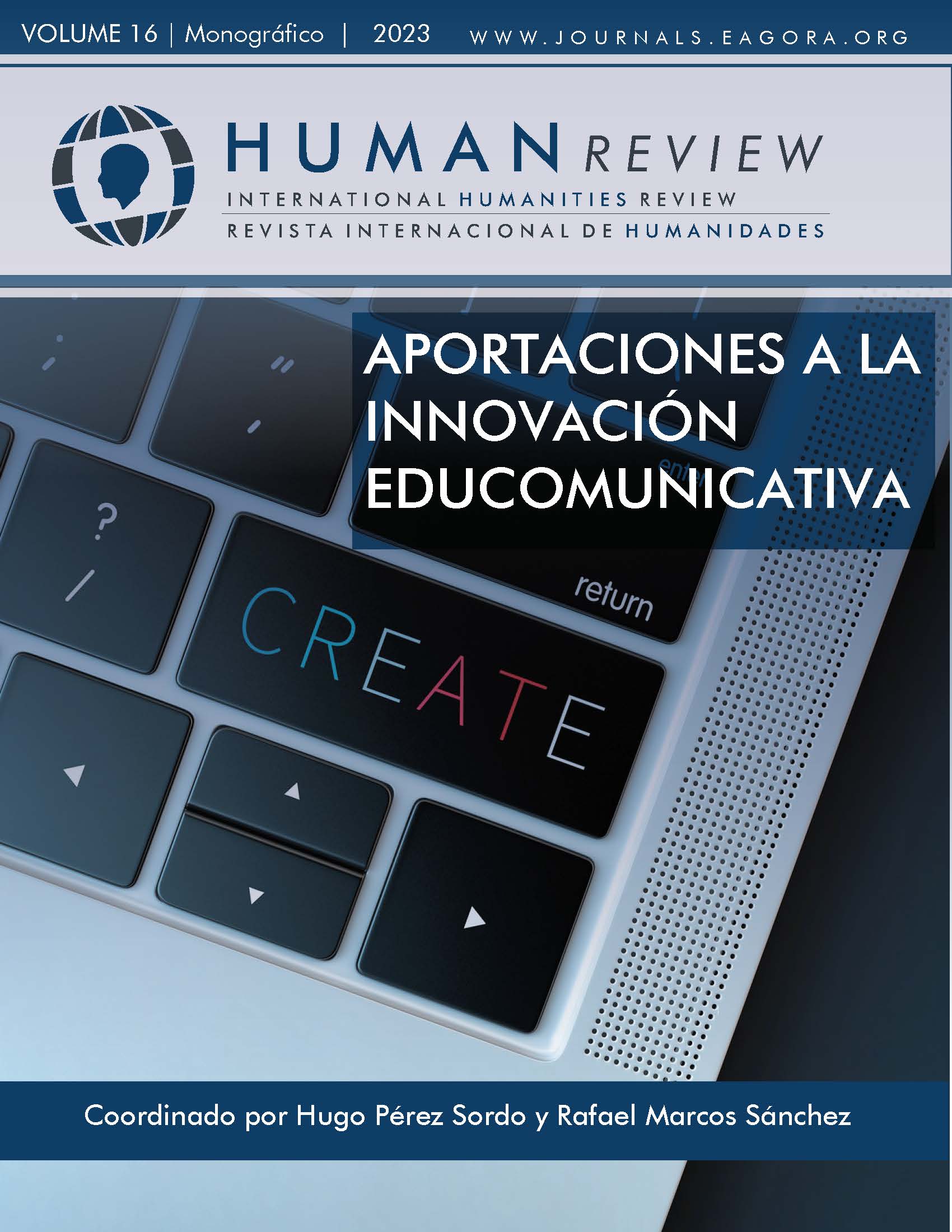Mother Earth’s Pedagogy and Eurythmy: Intercultural dialogue of pedagogical knowledges
Keywords:
Pedagogy of Mother Earth, Eurythmy, Relational pedagogy, Research- creation, Interculturality, Ancestry, Body- pedagogyAbstract
This article, based on the doctoral research in progress: Mother Earth’s Pedagogy and Eurythmy: intercultural dialogue of pedagogical knowledge, explores the question of other forms of research in pedagogy that expand this knowledge in teacher training. These ‘other’ knowledges emerge from the dialogue between the ancestral and the corporeal and will be known as pedagogical matrixes, alluding to the feminine quality of the word matrix (womb). These matrixes will be understood, incorporated, and reflected upon by the method called “Question the Body,’’ which emerges from field work. Finally, some lines of meaning that appear in the work in progress are outlined.
References
Aguilar, L. (2014). Embryologie als Ausgangspunkt fuer die Entwicklung eienes eurythmisch-kuenstlerischen und therapeutischen Ansatzes. (Tesis de maestría). Alanus University, Bonn.
Battán, A. (2014). Fenomenología y giro corporal. Memoria Académica, repositorio institucional de la Facultad de Humanidades y Ciencias de la Educación (FaHCE) de la Universidad Nacional de La Plata. https://www.memoria.fahce.unlp.edu.ar/programas/pp.8632/pp.8632.pdf
Casanova, G. & Klein, G. (2013). El gesto y la huella. Editorial Bilbos.
Dietz, G. [Universidad Diego Portales] (20.08.2022). Günther Dietz: Interculturalidad y diversidad cultural como recurso educativo. https://youtu.be/YZx745s6lWkYoutube
Farina, C. (2005) Arte, cuerpo y subjetividad. Estética de la formación y la pedagogía de las afecciones. (Tesis doctoral). Universidad de Barcelona. Barcelona.
Gavilán, V. (2011). El pensamiento en espiral. Working Paper series No. 40. Santiago de Chile. ISBN: 91-89629-44-2.
Giraldo, O. (2015). Utopías en la era de la supervivencia. Una interpretación del Buen Vivir. Itaca. México D.F., 2014, 220 p.. POLIS, Revista Latinoamericana, 14(40), 1-5.
Green, A. (2013). Educación superior desde la madre tierra, Revista Debates 67, 20-29.
Green, A., Rojas, A. & Sinigui, S. (2013). Licenciatura en Pedagogía de la Madre Tierra. una apuesta política, cultural y académica desde la educación superior y las comunidades ancestrales. Revista relaciones culturales en la diversidad. 85-94. Universidad de Antioquia.
Guerrero, P. (2010). Corazonar el sentido de las epistemologías dominantes desde las sabidurías insurgentes, para construir sentidos otros de la existencia (primera parte). Calle 14 revista de investigación en el campo del arte, 4(5), 80–95. https://doi.org/10.14483/21450706.1205
Guerrero, P. (2012). Corazonar desde el calor de las sabidurías insurgentes, la frialdad de la teoría y la metodología. Sophia, Colección de Filosofía de la Educación, (13),199-228. ISSN: 1390-3861. Disponible en: https://www.redalyc.org/articulo.oa?id=441846102009
Guerrero, P. (2018). La chakana del corazonar. Editorial Universitaria Abya-Yala.
Hernández, F. (2006). Campos, temas y metodologías para la investigación relacionada con las artes. Diversos Autores. Bases para un debate sobre investigación artística. Madrid: Ministerio de Educación y Ciencia.
Hernández, F. & Revelles, B. (2019). La perspectiva post-cualitativa en la investigación educativa: genealogía, movimientos, posibilidades y tensiones. Educatio Siglo XXI, vol 37, No. 2, pp 21-48. http://doi.org/10.6018/educatio.387001
Kothari, A., Salleh, A., Escobar, A., Demaria, F. & Acosta, A. (2019). Pluriverso: un diccionario del posdesarrollo. Icaria Editorial.
Lather, P & St. Pierre, E. (2013) Post-qualitative research, International Journal of Qualitative Studies in Education, 26:6, 629-633, DOI:10.1080/09518398.2013.788752. Disponible en: https://doi.org/10.1080/09518398.2013.788752
Larrosa, J. (2006). Sobre la experiencia. Aloma. Revista de Psicologia i Ciències de l‘Educació, 2006, num. 19, p. 87-112. Disponible en: http://hdl.handle.net/2445/96984
Planella, J. (2017) Pedagogías sensibles. Ediciones de la Universidad de Barcelona.
Roldan, J. & Marín, R. (2012). Metodologías Artísticas de Investigación en Educación. Ediciones aljibe.
Sam, M. (2014). Eurythmie. Entstehungsgeschichte und Porträts ihrer Pinieren. Dornach: Verlag am Goetheanum.
Sierra, Z. (2010). Pedagogías desde la Diversidad Cultural, una invitación para la investigación intercultural [Pedagogies from a Cultural Diversity Perspective]. Revista Perspectiva, Centro de Ciências da Educação, Universidade Federal de Santa Catarina, Vol. 28, No. 1, 157-190. Disponible en: https://goo.su/NhXP
Steiner, R. (1948). Das menschliche Leben von Gesichtspunkte der Geisteswissenschaft. Stuttgart: Freies Geistesleben.
Steiner, R. (1953). Eurythmie als Impuls für Künstlerisches betätigen und betrachten. Dornach: Rudolf Steiner Nachlassverwaltung.
Steiner, R. (1999). Eurythmie als sichtbare Gesang. Dornach: Rudolf Steiner Nachlassverwaltung.
Von Negelein, Günther. (2007). Eurythmie. Ein kosmischer Impuls durch Rudolf Steiner. Dornach: Rudolf Steiner Nachlassverwaltung.
Walsh, C. (2009). Interculturalidad crítica y educación intercultural. Disponible en: https://n9.cl/4wfk6
Downloads
Published
Issue
Section
License
All articles are published under an Attribution-NoDerivatives 4.0 International (CC BY-ND 4.0) license. Authors retain copyright over their work.

